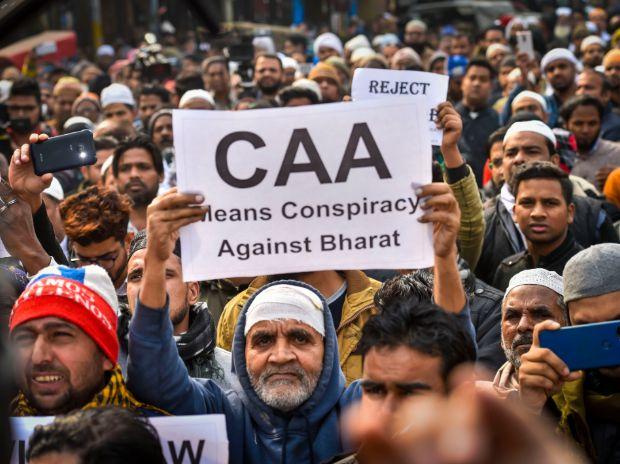
The central government has officially issued the rules for the Citizenship (Amendment) Act (CAA) on Monday, more than four years after its passage in Parliament.
The law aims to expedite the citizenship process for non-Muslims who entered India from Afghanistan, Pakistan, and Bangladesh before December 31, 2014, sparking protests nationwide.
Union Home Minister Amit Shah, as per a report on Hindustan Times, assured that the rules would be framed before the 2024 national elections scheduled for this summer.
Officials confirmed that the entire application process for eligible individuals seeking Indian citizenship under the law will be conducted online. Despite Shah’s commitment, the rules were formulated months after the promised deadline.
The CAA was passed by Parliament on December 11, 2019, and promptly notified within 24 hours.
According to parliamentary procedures, rules for any legislation should have been established within six months of presidential assent, necessitating extensions from the Committees on Subordinate Legislation in both Lok Sabha and Rajya Sabha.
Since 2020, the Union Home Ministry has consistently sought extensions from the committees to formulate rules for eligible citizenship applications.
The implementation of the CAA was a significant electoral promise of the Bharatiya Janata Party (BJP) during the previous Lok Sabha and the 2021 West Bengal assembly polls.
West Bengal’s ruling Trinamool Congress has vehemently opposed the CAA, denouncing it as unconstitutional for linking citizenship to faith in a secular country.
The enactment of the CAA sparked widespread protests, with critics decrying it as discriminatory and unconstitutional for excluding Muslims and intertwining faith with citizenship in a secular nation.
Under the newly specified law, Indian citizenship will also be granted to immigrants who have been residing in India for at least five of the last 14 years or have lived in the country for the past one year.
Under the act, for the specified class of illegal migrants, the government has relaxed the residency requirement to five years, a significant reduction from the previous requirement of 11 years for citizenship by naturalization.
Here are the key areas:
Categories Eligible for Citizenship:
1. individuals of Indian Origin: Any individual of Indian origin seeking registration as a citizen of India.
2. Spouse of Indian Citizen: Individuals married to a citizen of India seeking registration as a citizen of India.
3. Minor Child of Indian Citizen: Applications from minor children of Indian citizens seeking registration as citizens of India.
4. Parents Registered as Citizens: Individuals whose parents are registered as citizens of India seeking registration as citizens.
5. Parental Connection to Independent India: Applications from individuals whose parents were citizens of Independent India, seeking registration as citizens.
6. Overseas Citizen of India Cardholder: Individuals registered as Overseas Citizen of India Cardholders.
Documents Required for Naturalization:
– Submission of Form VIIIA, encompassing all necessary details and documentation.
– Affidavit verifying the accuracy of statements made in the application.
– Character affidavit from an Indian citizen.
– Declaration of adequate knowledge of one of the languages specified in the Eighth Schedule of the Constitution.
Application Process:
1. Submission of application electronically to the Empowered Committee through the District Level Committee designated by the Central Government.
2. Acknowledgment in Form IX upon submission.
3. Document verification by the District Level Committee.
4. Administration of the oath of allegiance by the Designated Officer.
5. Forwarding of signed oath and document verification confirmation to the Empowered Committee.
6. Consideration of refusal if the applicant fails to appear despite reasonable opportunities.




